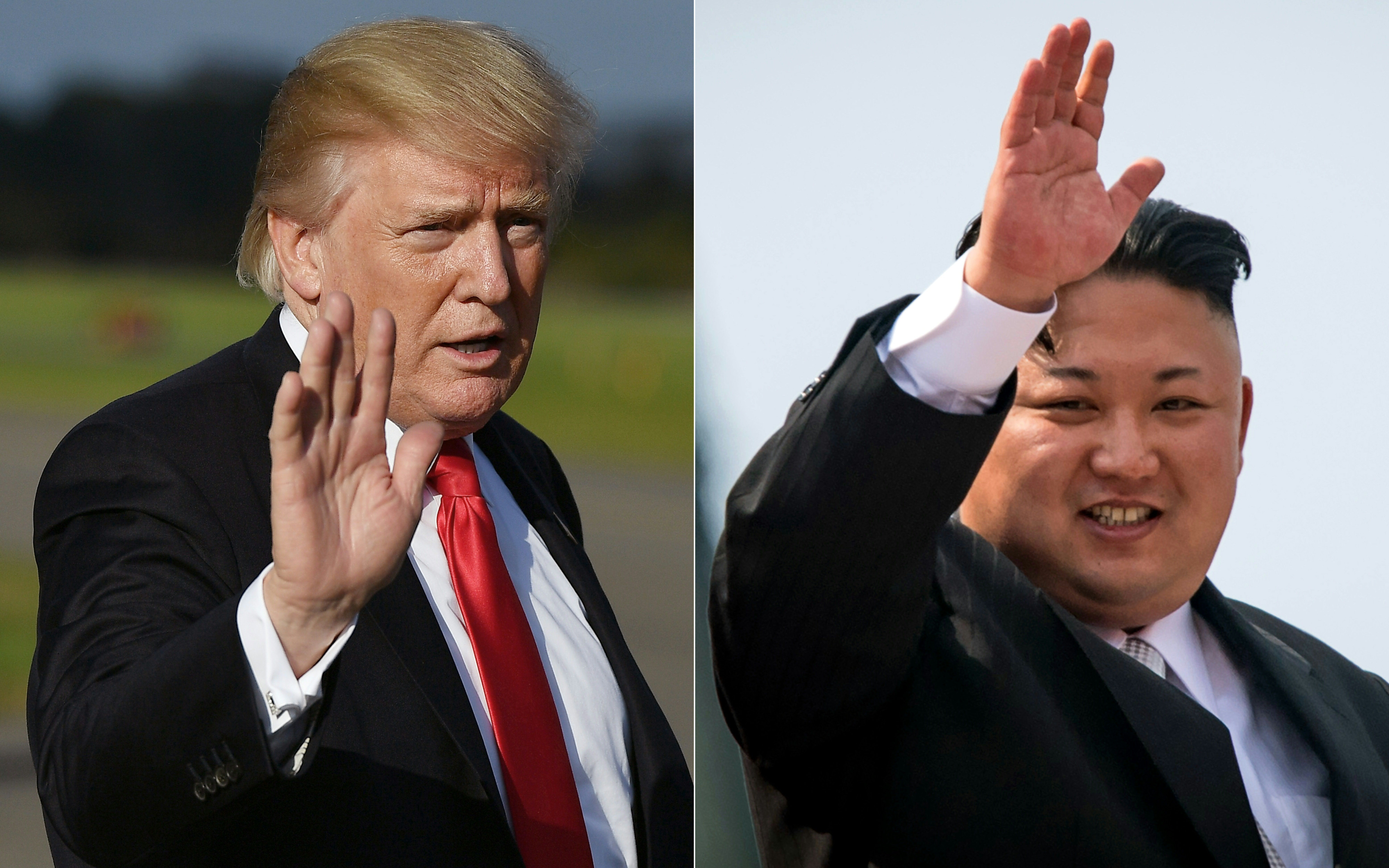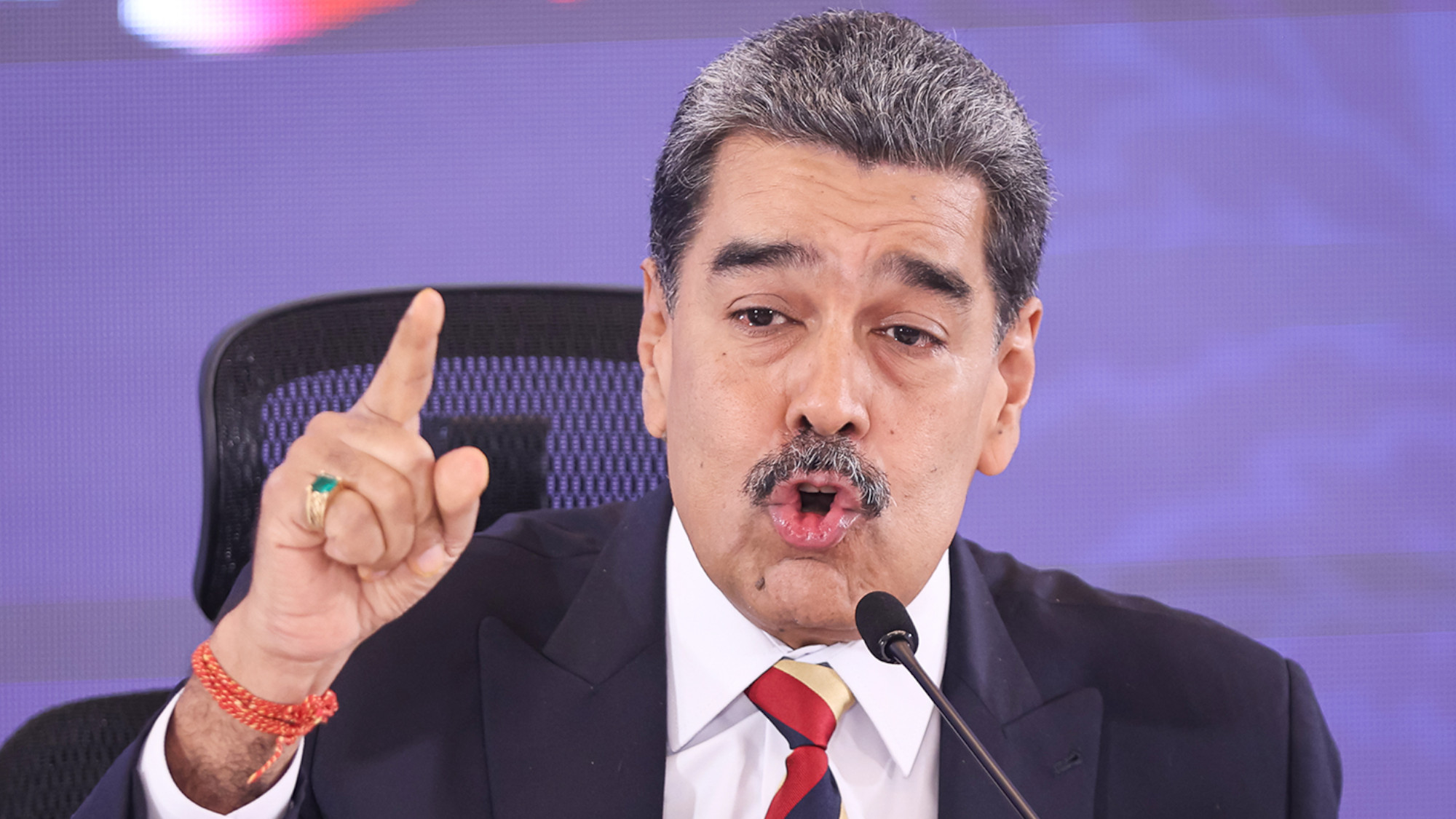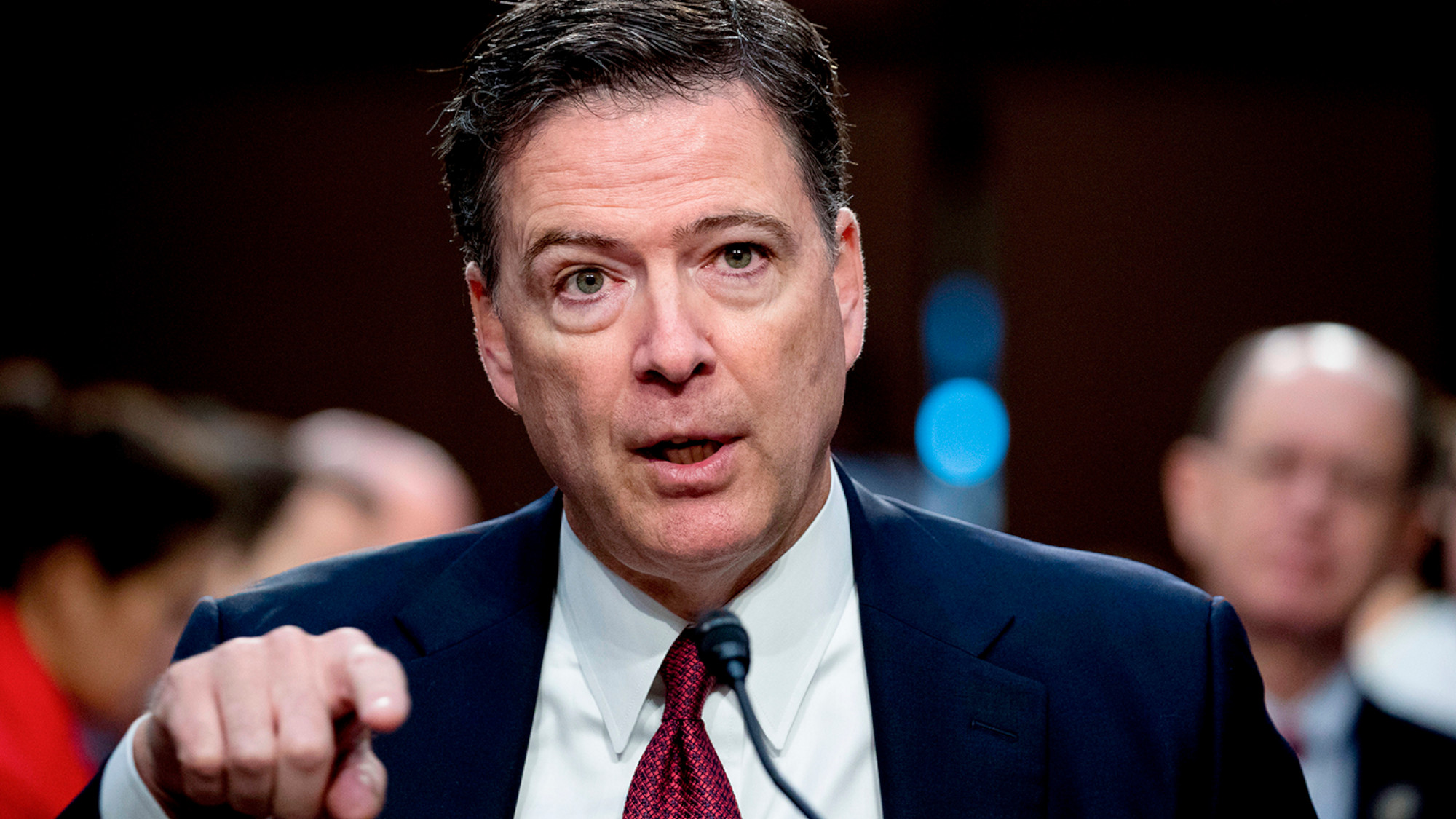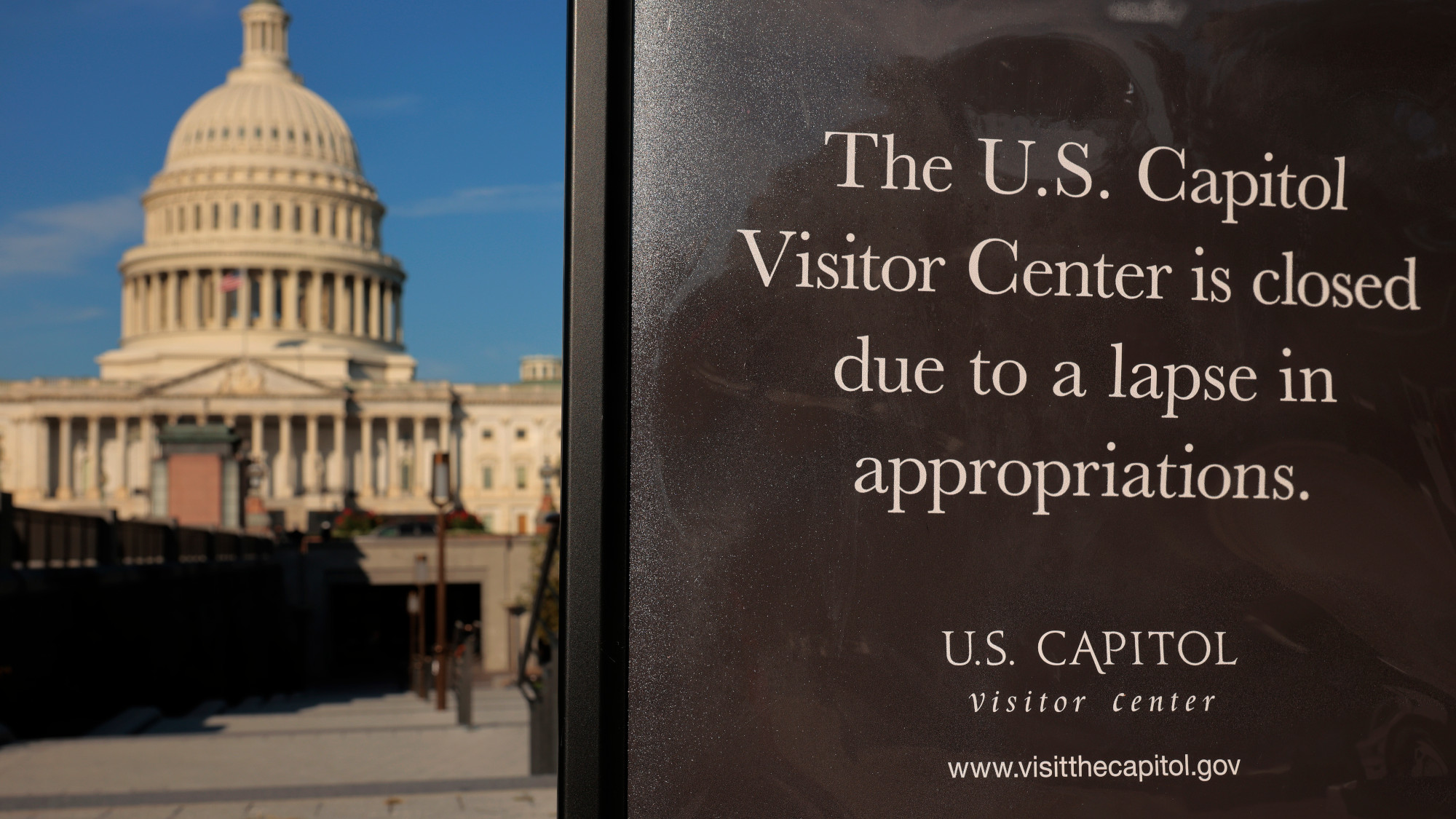Is Trump walking into Kim Jong Un's trap?
Is President Trump reaping the fruit of his unorthodox diplomacy, or is he Wile E. Coyote?


If President Trump actually meets with North Korean leader Kim Jong Un and forges lasting peace on a nuclear-free Korean Peninsula, that would be truly amazing. We should all hope that happens. The fact that Trump and Kim appear to be giving peace a chance — after Trump's "short and fat" and "Little Rocket Man" taunts and "fire and fury" threat, and Kim's vow to "tame the mentally deranged U.S. dotard with fire" — is already an indisputably positive development.
The announcement that Trump has agreed to meet with Kim by the end of May was made Thursday. The White House confirmed the news, and Trump tweeted, "Great progress being made ... Meeting being planned!"
"Optimists declared a major breakthrough," Karen DeYoung notes at The Washington Post. "Even pessimists acknowledged that Trump's hard line against Pyongyang, after decades of less forceful U.S. effort, played a significant role in moving one of the world's most vexing and threatening problems in a potentially positive direction. But in the afterglow of the surprise announcement ... questions were fast and furious."
The Week
Escape your echo chamber. Get the facts behind the news, plus analysis from multiple perspectives.

Sign up for The Week's Free Newsletters
From our morning news briefing to a weekly Good News Newsletter, get the best of The Week delivered directly to your inbox.
From our morning news briefing to a weekly Good News Newsletter, get the best of The Week delivered directly to your inbox.
There's the question of whether Trump is rewarding Kim with a face-to-face summit, something no other sitting president has agreed to despite invitations from Pyongyang, or just ripping up a playbook that hasn't resulted in success for 25 years. Is Trump a good negotiator, book title notwithstanding? Does South Korea have it right that Kim is offering "permanent denuclearization"? If so, can Kim be trusted? And what is the U.S. willing to bring to the table? "Sanctions?" asks Victor Cha, Trump's onetime pick to be U.S. ambassador to South Korea. "Normalization? Peace treaty?"
But another question looms very large: Is this a trap?
The White House says Trump can handle this, isn't offering much, and will accept nothing less than North Korea completely dismantling its nuclear weapons program, with verification. "President Trump has a reputation for making deals," a senior administration official told reporters. "Kim Jong Un is the one person able to make decisions in their uniquely totalitarian system and so it made sense to accept the invitation with the one person who can make decisions instead of repeating the long slog of the past."
But Kim is unlikely to accept Trump's one non-negotiable. "No sentient human can believe Kim is 'committed to denuclearization,'" says Axios' Jonathan Swan. "Denuclearization is a distant fantasy," agrees Adam Mount, a senior fellow at the Federation of American Scientists, and "in accepting the invitation outright, Trump has already lost much of his leverage over the terms and agenda of the talks."
A free daily email with the biggest news stories of the day – and the best features from TheWeek.com
"To be clear — we need to talk to North Korea," says Jeffrey Lewis, director of the East Asia Nonproliferation Program at the Middlebury Institute of International Studies. "But Kim is not inviting Trump so that he can surrender North Korea's weapons. Kim is inviting Trump to demonstrate that his investment in nuclear and missile capabilities has forced the United States to treat him as an equal." This is "an incredible coup for Kim," Lewis adds. "This is literally the end of a North Korean movie — North Korea develops nuclear weapons and ballistic missiles, compelling the U.S. president to come to Pyongyang."
Gen. Michael Hayden, former CIA and NSA director, circled around the "bad feeling" every Star Wars character gets before they walk into a trap.
Here are two leaders "who believe fundamentally that they are the only people who matter," says Wendy Sherman, a longtime former diplomat who visited North Korea with the Clinton team. Maybe they're right, but, "this is very serious business. It is not a reality show. And it's our national security that is at stake."
David Ignatius at The Washington Post compares Trump to a hapless cartoon character prone to falling into his own trap, sharing a text he got from former CIA analyst and North Korea negotiator Robert Carlin: "So typical. ... The North Koreans as Road Runner, the U.S. as Wile E. Coyote." Under Trump, Ignatius says, American diplomacy "has become something of a hapless cartoon villain, detonating bombs on itself and running into walls — while our nimbler adversaries dart away in a blur of dust."
The U.S. has been negotiating with North Korea over nuclear weapons since the Clinton administration, bilaterally or with five other nations, and North Korea keeps breaking its agreements. "But despite this checkered track record, there are still compelling reasons for the United States to enter into talks with North Korea," Uri Friedman argues at Defense One. "The latest diplomatic opening offers a chance to better understand the enigmatic Kim regime, curb its runaway nuclear program, and address direct threats to the United States that haven't been central to past rounds of negotiations. ... And perhaps the greatest reason for hope is this: The playbook has never ever included a summit between the American and North Korean heads of state — let alone the likes of Donald Trump and Kim Jong Un."
Kim is something of an enigma, but Trump's "shocking and yet somehow not surprising" decision to meet with the North Korean leader fits neatly with his "audacious and supremely self-confident approach to international affairs," says Peter Baker at The New York Times. "Trump has repeatedly claimed that he can achieve what has eluded every other occupant of his office through the force of his own personality," and while "so far, he has little to show for that," there's a first time for everything.
Peter has worked as a news and culture writer and editor at The Week since the site's launch in 2008. He covers politics, world affairs, religion and cultural currents. His journalism career began as a copy editor at a financial newswire and has included editorial positions at The New York Times Magazine, Facts on File, and Oregon State University.
-
 Taking aim at Venezuela’s autocrat
Taking aim at Venezuela’s autocratFeature The Trump administration is ramping up military pressure on Nicolás Maduro. Is he a threat to the U.S.?
-
 Comey indictment: Is the justice system broken?
Comey indictment: Is the justice system broken?Feature U.S. attorney Lindsey Halligan has indicted former FBI Director James Comey on charges of lying and obstructing Congress
-
 Government shuts down amid partisan deadlock
Government shuts down amid partisan deadlockFeature As Democrats and Republicans clash over health care and spending, the shutdown leaves 750,000 federal workers in limbo
-
 Ghislaine Maxwell: angling for a Trump pardon
Ghislaine Maxwell: angling for a Trump pardonTalking Point Convicted sex trafficker's testimony could shed new light on president's links to Jeffrey Epstein
-
 The last words and final moments of 40 presidents
The last words and final moments of 40 presidentsThe Explainer Some are eloquent quotes worthy of the holders of the highest office in the nation, and others... aren't
-
 The JFK files: the truth at last?
The JFK files: the truth at last?In The Spotlight More than 64,000 previously classified documents relating the 1963 assassination of John F. Kennedy have been released by the Trump administration
-
 'Seriously, not literally': how should the world take Donald Trump?
'Seriously, not literally': how should the world take Donald Trump?Today's big question White House rhetoric and reality look likely to become increasingly blurred
-
 Will Trump's 'madman' strategy pay off?
Will Trump's 'madman' strategy pay off?Today's Big Question Incoming US president likes to seem unpredictable but, this time round, world leaders could be wise to his playbook
-
 Democrats vs. Republicans: which party are the billionaires backing?
Democrats vs. Republicans: which party are the billionaires backing?The Explainer Younger tech titans join 'boys' club throwing money and support' behind President Trump, while older plutocrats quietly rebuke new administration
-
 US election: where things stand with one week to go
US election: where things stand with one week to goThe Explainer Harris' lead in the polls has been narrowing in Trump's favour, but her campaign remains 'cautiously optimistic'
-
 Is Trump okay?
Is Trump okay?Today's Big Question Former president's mental fitness and alleged cognitive decline firmly back in the spotlight after 'bizarre' town hall event
